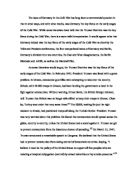

Furthermore, Russian military action in the Crimea in 2014 caused much consternation in the West over fears that the Kremlin was attempting to coerce its regional neighbours and expand its borders via ambiguous but aggressive military action. This is the era of indirect war by proxy.Ĭoncerns over the increased recourse to proxy war are currently prevalent given how the West is tackling the Islamic State (ISIS/ISIL/Daesh) in part through the delivery of large amounts of weaponry, ammunition, and money to moderate Syrian rebel groups and the Kurdish peshmerga.

A heightened perception of risk, greater restrictions on military expenditure as a result of the global financial crisis of 2007-2008, and a greater public aversion (in the West at least) to conventional confrontation has led to an accentuated appeal for national security goals and defence priorities being attained by other means. An approximate 50% reduction in major inter- and intra-state conflicts between 19 belies a significant shift in global attitudes to war. Governments and militaries around the world are simply changing the way that their strategic objectives are secured.

But war is not becoming an obsolete element of human interaction. Since the end of the Cold War inter-state war has declined globally, whilst even civil wars have become a relative rarity.


 0 kommentar(er)
0 kommentar(er)
